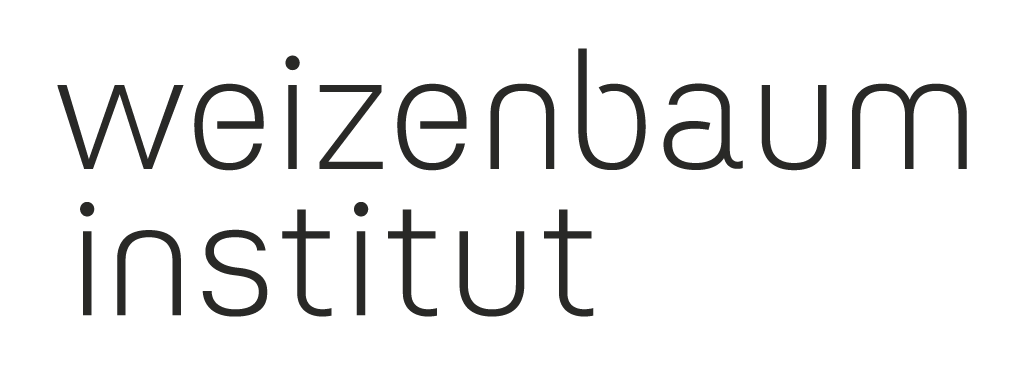Research Semester with Fellowship at Weizenbaum Institute

I am very excited to be researching on digitality and identity politics with a fellowship at the Weizenbaum Institute in Berlin in the summer semester of 2022. I am working in the Digital Citizenship research group of Martin Emmer and Christian Strippel and thank them for their generous support. My teaching in Freiburg will be substituted during this research semester.
Research Project: Online Communication as Democratization. Identity Politics and the Digital Transformation of the Public Sphere
Identity politics is often criticized for destroying rational political discourse and the democratic community through advancing particular standpoints of minorities instead of a universalist perspective. This criticism often goes together with a critique of online communication. Filter bubbles and algorithms are interpreted as amplifiers of identity politic’s particularism, thus pushing its alleged anti-democratic tribalism to alarming levels. To counter such criticism, in my current research, I develop a radical democratic interpretation of identity politics as necessary for the democratization of democracy. This interpretation is based on an understanding of the existing political order as necessarily particularistic and exclusive. Democracy, on the other hand, is the ongoing struggle for equality and freedom and therefore aims at transforming the real existing democratic institutions. And the universal claims of equality and freedom can only become effective through their repeated actualization in particular power struggles. Disruptively breaking through established understandings of universal discourse by particular identity politics is central to the further democratization of democracy. So far, I have not taken the digital transformation of the public sphere into account. At Weizenbaum Institute, I aim to ask if and how the theory of identity politics needs to account for new digital infrastructures. My hypothesis is that online communication, especially in social media, allows both for social closure, which is necessary for the development of a minority standpoint, and openness to the mainstream public. This leads to a new interpretation of phenomena like filter bubbles and algorithmic amplification as potentially valuable elements of democratic transformations and thereby allows to develop normative criteria for their regulation.
Related Posts
- New article: Democratization Through Filter Bubbles. Affordances of Closures and Openings (in German), 26. June 2023
- New Open-Access Anthology: Transformations of the Political. Radical Democratic Theories for the 2020s, 4. December 2023
- Conference: Transformations of the Political. Radical Democratic Theory for the 2020s, 19. October 2022
- Identity Politics, Cancel Culture, Net Feminism: Lectures and Discussion Events in the Winter Semester, 6. December 2021